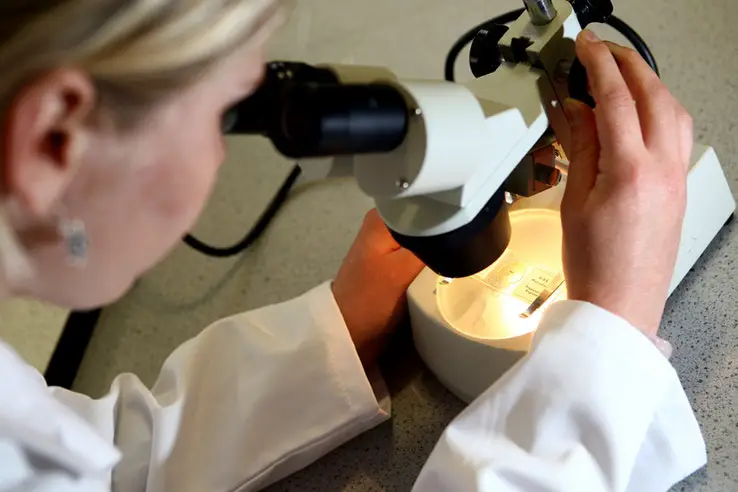The take-up rate for cervical screenings on the Isle of Wight has fallen for the seventh consecutive year.
Only 71.6% of the 33,600 women who were due a smear test before the end of March attended an appointment.
This means around 9,550 women missed out on the ‘life-saving’ programme.
Plummeting attendance enormously worrying
Cancer charities have said the “plummeting” attendance rate in England is enormously worrying.
Attendance across England has also fallen for the fourth year in a row, reaching 71.4% last year.
Rising cervical cancer diagnoses nationally
Robert Music, chief executive of Jo’s Cervical Cancer Trust, said women are finding it increasingly difficult to access appointments.
He said:
“These statistics are highly frustrating and, coupled with rising cervical cancer diagnoses, an enormous worry.
“Women in England are frankly being let down.
“Many struggle to get screening appointments at their GP, access through sexual health is declining, and there is limited provision for those requiring extra support including survivors of sexual violence or those with a learning disability.
“We cannot sit back and let cervical screening coverage continue to plummet or diagnoses of this often preventable cancer will rise and more mothers, daughters, sisters and friends will be lost.”
What is cervical screening?
Cervical screening is a test that looks for changes in the cells of the cervix which could develop into cancer.
Women aged between 25 and 49 are invited for a screening every three years, while those aged 50 to 64 attend every five years.
If they do not have a test within six months of their latest invitation they are counted as not having attended.
Age group comparisons
On the Isle of Wight, the younger age group were less likely to be up to date with their tests.
Just 70.8% of 25 to 40-year-olds had attended their last appointment before the end of March compared to 72.6% of 50 to 64-year-olds.
Cancer Research: “Need to fully understand reasons behind figures”
Karis Betts, from Cancer Research UK, said there were a number of reasons why some women might not attend their smear test.
She said:
“Some women don’t know screening is for people without symptoms and there can also be practical or cultural reasons why they might find it difficult to make an appointment.
“We need to fully understand the reasons behind the figures to make screening as accessible and effective as possible.
“We know screening saves 2,000 lives each year, so we would encourage people to think about taking part when they receive their invitation.”
PHE: Declining take-up rate was “of real concern”
Professor Anne Mackie, director of screening at Public Health England, which runs the cervical screening programme, said the declining take-up rate was “of real concern”.
She said:
“We know that for some women worries about embarrassment or discomfort can put them off.
“If they are concerned they can ask a GP or practice nurse who can explain what’s involved and help them make a choice about screening.
“We’re supporting the NHS to reach more women by raising awareness about the test, and early next year we’re launching a Be Clear on Cancer campaign focusing on the importance of cervical screening.”
Article shared by Data Reporter as part of OnTheWight’s collaboration with Press Association and Urbs Media





